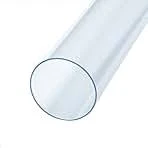Sep . 10, 2024 12:43 Back to list
PPR Water Pipe - Durable and Eco-Friendly Solutions for Plumbing
Understanding PPR Water Pipes A Comprehensive Overview
PPR (Polypropylene Random Copolymer) water pipes have gained significant popularity in the plumbing and construction industries due to their remarkable properties and advantages. These pipes are primarily used for the transportation of water and other fluids in residential, commercial, and industrial settings.
What Are PPR Water Pipes?
PPR water pipes are made from a type of polypropylene known for its resistance to high temperatures and pressure. The random copolymerization process used to create PPR enhances the material's elasticity and strength, making it suitable for a variety of applications. PPR pipes are typically available in a range of sizes, from small diameters for residential uses to large diameters for industrial applications.
Advantages of PPR Pipes
1. Durability One of the standout features of PPR pipes is their durability. They resist corrosion, rust, and chemical reactions, which are common issues in traditional metal pipes. This inherent resistance extends the lifespan of PPR pipes, often exceeding 50 years with proper installation and maintenance.
2. Temperature Resistance PPR pipes can handle temperatures of up to 95°C (203°F), making them ideal for hot water systems. This high-temperature tolerance ensures that they maintain structural integrity without deforming or leaking.
ppr water pipe

3. Smooth Inner Surface The inner surface of PPR pipes is smooth, which reduces friction and allows for better water flow. This feature minimizes energy losses and the risk of clogs, ensuring efficient fluid transport.
4. Non-Toxic PPR pipes are non-toxic and do not leach harmful chemicals into the water supply. This property makes them a safe choice for drinking water systems, ensuring that the water remains clean and safe for consumption.
5. Easy Installation PPR pipes are lightweight and easy to handle, making them simpler to install compared to traditional materials such as metal and clay. They can be joined using a heat fusion method, which creates a strong and leak-proof connection.
Environmental Impact
Another significant advantage of using PPR water pipes is their minimal environmental impact. The production of PPR pipes consumes less energy compared to metal pipes, and their long lifespan reduces the need for frequent replacements, further decreasing environmental waste. Moreover, being recyclable, PPR pipes can be repurposed after their service life, contributing to a more sustainable plumbing solution.
Conclusion
In summary, PPR water pipes represent an outstanding choice for a wide range of plumbing applications. Their durability, temperature resistance, non-toxic nature, and ease of installation make them an ideal alternative to traditional piping materials. As more builders and homeowners recognize these benefits, PPR pipes are likely to continue their rise in popularity, paving the way for a more efficient and sustainable plumbing future. Whether for new construction, renovation, or repair projects, PPR pipes offer a reliable solution that meets the demands of modern water supply systems. Investing in quality PPR plumbing solutions not only ensures long-lasting performance but also promotes environmental responsibility, making it a thoughtful choice for any construction endeavor.
-
Premium CPVC Sheet: High-Temp & Chemical Resistant Solutions
NewsAug.15,2025
-
Durable PPR Pipe for Hot & Cold Water Systems - Easy Install
NewsAug.14,2025
-
Durable HDPE Sheet | Versatile & Impact-Resistant Plastic
NewsAug.13,2025
-
Premium PVC Soft Sheets: Clear, Flexible & Durable
NewsAug.12,2025
-
Premium PVC Round Rods: Durable, Chemical Resistant, Easy to Machine
NewsAug.11,2025
-
PP U-channel: Chemical-Resistant, Lightweight & Durable
NewsAug.10,2025

